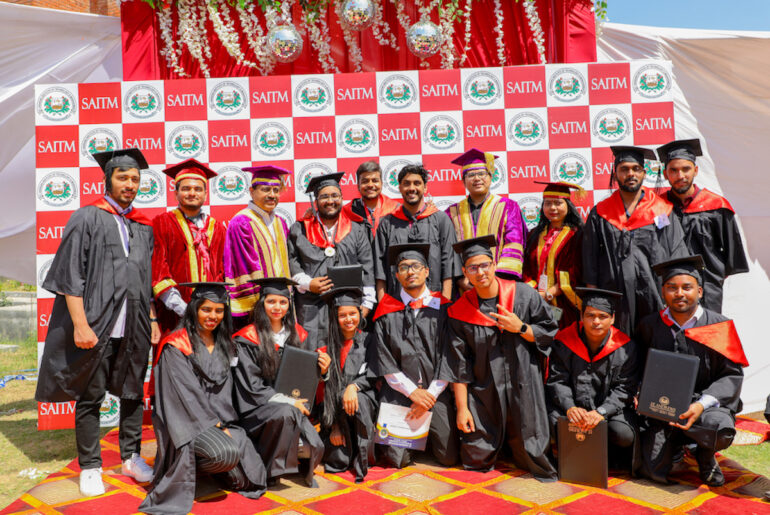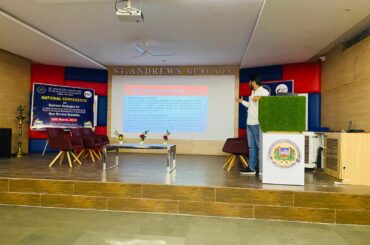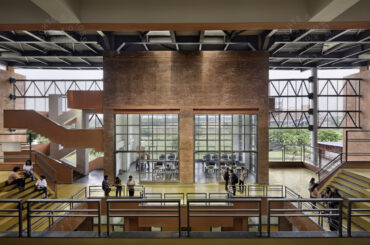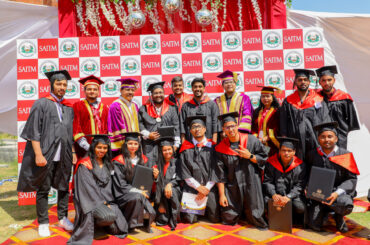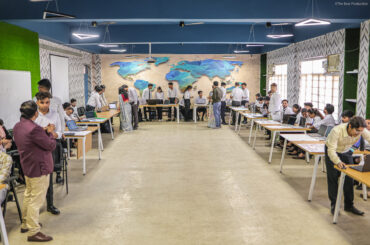Which Course is Best in BTech?
Determining “Which Course is Best in BTech” depends on your personal interests and career aspirations. For tech enthusiasts, Computer Science is a popular choice, while Mechanical Engineering appeals to those interested in manufacturing. Civil Engineering is ideal for those focused on infrastructure development. Each course offers unique opportunities and is tailored to different skill sets and industry needs.
Computer Science and Engineering (CSE)
Overview: Explore the foundational aspects of computing, algorithms, electronics engineering,
programming languages, and software engineering.
Career Opportunities: Software Developer, Data Scientist, AI Engineer, Cybersecurity Analyst, System Analyst.
Electronics and Communication Engineering (ECE):
Overview: Focus on electronics, telecommunications, signal processing, and embedded systems.
Career Opportunities: Telecom Engineer, Network Engineer, Embedded Systems Engineer, VLSI Design Engineer, Signal Processing Engineer.
Mechanical Engineering
Overview: Learn about machines, manufacturing processes, materials science, and mechanical design.
Career Opportunities: Mechanical Engineer, Design Engineer, Production Engineer, Quality Control Engineer, Maintenance Engineer.
Civil Engineering
Overview: Study infrastructure development, construction techniques, and urban planning.
Career Opportunities: Civil Engineer, Structural Engineer, Project Manager, Urban Planner, Environmental Engineer.
Electrical Engineering
Overview: Cover electrical systems, power generation, electronics, control systems, and renewable energy.
Career Opportunities: Electrical Engineer, Power Systems Engineer, Control Systems Engineer, Electronics Engineer, Energy Consultant.
Information Technology {IT}
Overview: Focus on IT infrastructure, software engineering, networking, cybersecurity, and cloud computing.
Career Opportunities: IT Consultant, Systems Analyst, Network Administrator, Cloud Engineer, IT Manager.
Chemical Engineering
Overview: Study chemical processes, biotechnology, materials science, and electronics engineering.
Career Opportunities: Chemical Engineer, Process Engineer, Biotechnologist, Environmental Engineer, Quality Control Engineer.
Biotechnology Engineering;
Overview: Explore applications in healthcare, pharmaceuticals, agriculture, and environmental sustainability.
Career Opportunities: Biomedical Engineer, Biotechnologist, Clinical Research Associate, Genetic Engineer, Bioinformatics Specialist.
Aeronautical Engineering:
Overview: Focus on aircraft design, space exploration, aerodynamics, propulsion systems, and satellite technology.
Career Opportunities: Aerospace Engineer, Avionics Engineer, Flight Test Engineer, Aerospace Designer, Systems Engineer.
Artificial Intelligence and Machine Learning;
Overview: Dive into AI algorithms, automated learning models, deep learning, natural language processing, and robotics.
Career Opportunities: AI Engineer, Automated Learning Engineer, Data Scientist, NLP Engineer, Robotics Engineer.
Some of the most opted courses in India and St. Andrews college or different Engineering college or Management colleges are as follows:-
- Btech
- Btech CSE
- Btech ETCE
- MTech
- BCA
- BBA
- MBA
- MCA
- DPharma – St. Andrews College of Pharmacy
- BPharma – St. Andrews College of Pharmacy
- BArch – St. Andrews College of Architecture
BTech Courses
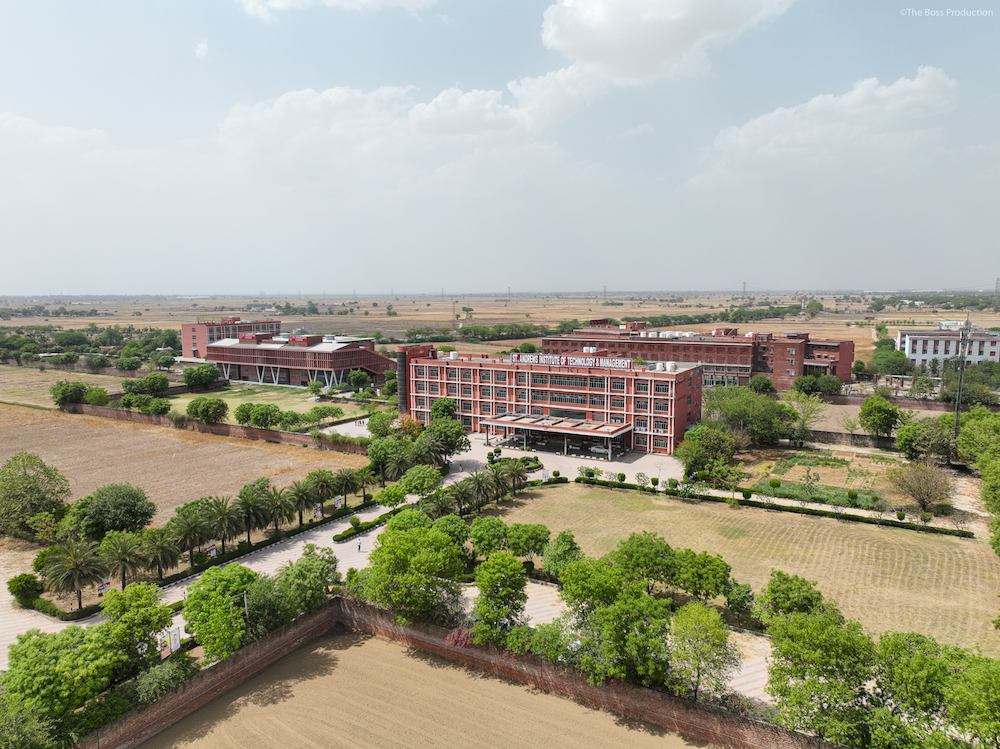
A Bachelor of Technology (BTech) program typically spans over four years and is designed to provide students with a solid foundation in engineering principles, practical skills, and specialized knowledge in a chosen field.
Here’s an overview of what you can expect from a BTech program:
Core Curriculum and Specializations
Core Courses: In the initial years, students cover foundational subjects such as mathematics, physics, chemistry, and basic engineering principles.
Specializations: As students progress, they choose a specialization based on their interests and career aspirations. Common specializations include CSE, Electronics and Communication Engineering (ECE), Mechanical Engineering, Civil Engineering, Electrical Engineering, and more niche areas like Biotechnology, Aerospace Engineering, and Chemical Engineering.
Hands-On Learning and Laboratory Work
Practical Training: Bachelor of Technology (BTech) programs emphasize hands-on learning through laboratory work, workshops, and industry projects.
Design Projects: Students often participate in design projects that apply theoretical knowledge to real-world engineering challenges, fostering problem-solving skills and creativity.
Industry-Relevant Skills
Technical Skills: Programs focus on equipping students with technical skills relevant to their chosen specialization, such as programming languages, circuit design, mechanical systems, structural analysis, etc.
Soft Skills: Communication skills, teamwork, project management, and ethical considerations are also emphasized to prepare students for professional environments.
Internships and Industrial Training
Practical Exposure: Many BTech programs include mandatory internships or industrial training periods where students gain practical experience in professional settings.
Industry Connect: These experiences help students apply classroom knowledge, build professional networks, and understand industry practices and expectations.
Elective Courses and Interdisciplinary Opportunities
Electives: Students often have the flexibility to choose elective courses within and outside their core specialization to tailor their learning experience.
Interdisciplinary Learning: Some programs offer opportunities to collaborate with students from other disciplines, fostering a holistic approach to problem-solving and innovation.
Project Work and Research
Capstone Projects: BTech programs typically culminate in a major project or thesis in the final year, allowing students to showcase their skills and knowledge in a comprehensive manner.
Research Opportunities: Depending on the program and institution, students may have opportunities to engage in research activities under faculty guidance, contributing to advancements in their field.
Career Opportunities and Pathways
Employment: BTech graduates are sought after by various industries including IT, manufacturing, automotive, telecommunications, construction, healthcare, and more.
Higher Education: Some graduates opt for higher studies such as Master’s programs (MTech, MS), MBA, or PhDs to further specialize or pursue careers in research and academia.
Continuous Learning and Adaptability
Lifelong Learning: Engineering is a dynamic field, and BTech programs instill a mindset of continuous learning and adaptability to technological advancements and industry changes.
Professional Development: Graduates often engage in professional development activities, certifications, and workshops to stay updated with emerging trends and maintain their competitive edge in the job market.
Best BTech Courses to Pursue
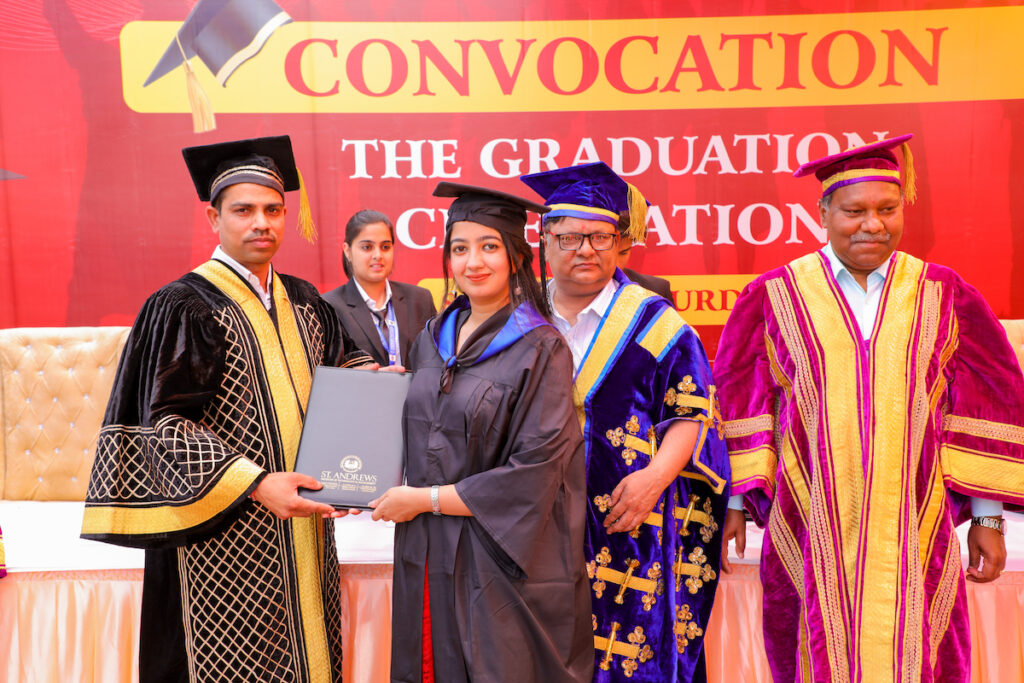
Here are some of the most popular and promising BTech courses:
Computer Science Engineering (CSE)
Focus: Software engineering, programming, computer networks, AI, automated learning.
Career Prospects: Software developer, data scientist, AI engineer, cybersecurity expert.
Electronics and Communication Engineering (ECE)
Focus: Electronics, communication systems, signal processing.
Career Prospects: Electronics engineer, communication engineer, embedded systems developer.
Mechanical Engineering;
Focus: Mechanics, thermodynamics, robotics, automotive engineering.
Career Prospects: Mechanical engineer, design engineer, automotive engineer.
Electrical Engineering;
Focus: Electrical circuits, power systems, control systems.
Career Prospects: Electrical engineer, power systems engineer, control systems engineer.
Civil Engineering:
Focus: Construction, infrastructure development, environmental engineering.
Career Prospects: Civil engineer, structural engineer, construction manager.
Information Technology (IT):
Focus: Information systems, network administration, cybersecurity.
Career Prospects: IT consultant, network administrator, cybersecurity analyst.
Chemical Engineering:
Focus: Chemical processes, materials science, industrial chemistry.
Career Prospects: Chemical engineer, process engineer, materials engineer.
Aerospace Engineering:
Focus: Aircraft and spacecraft design, aerodynamics, propulsion systems.
Career Prospects: Aerospace engineer, defense contractor, research scientist.
Biotechnology Engineering:
Focus: Genetic engineering, pharmaceuticals, bioinformatics.
Career Prospects: Biotechnologist, research scientist, pharmaceutical engineer.
Automobile Engineering
Focus: Vehicle design, manufacturing, and maintenance.
Career Prospects: Automotive engineer, design engineer, quality control engineer.
Courses After BTech

After completing a BTech, there are numerous courses and paths you can pursue depending on your interests and career goals:
Postgraduate Courses
MTech (Master of Technology): Advanced technical knowledge in a specific engineering discipline.
MS (Master of Science): Typically pursued abroad for specialization in engineering or related fields.
MBA (Master of Business Administration): For those interested in management, entrepreneurship, or leadership roles.
Specialized Certifications and Diplomas
Data Science and Analytics: Courses in data analysis, automated learning, and big data.
Artificial Intelligence and Machine Learning: Specialized programs focusing on AI technologies.
Cybersecurity: Certifications like CISSP, CEH, and CompTIA Security+.
Cloud Computing: Certifications such as AWS Certified Solutions Architect, Google Cloud Professional.
Project Management: PMP (Project Management Professional) and PRINCE2.
Public Sector and Government Exams
GATE (Graduate Aptitude Test in Engineering): For admission to postgraduate programs or jobs in PSUs (Public Sector Undertakings).
IES (Indian Engineering Services): For a career in various government engineering departments.
UPSC (Union Public Service Commission): Civil services exams for administrative roles.
Professional Courses
Chartered Financial Analyst (CFA): For a career in finance.
Certified Public Accountant (CPA): For a career in accounting and finance.
Entrepreneurship and Startups
Startup Incubation Programs: Courses and mentorship for starting your own business.
Online Courses and MOOCs
Platforms like Coursera, edX, and Udacity offer a variety of courses in programming, design, management, and more.
Higher Studies Abroad
GRE (Graduate Record Examination): For admission to graduate schools, especially in the US.
TOEFL/IELTS: English proficiency exams required for studying abroad.
Research and PhD
Pursue a PhD in engineering or related fields for a career in academia or research.
Job-Oriented Courses
Digital Marketing: Courses in SEO, SEM, social media marketing.
Software Development: Full-stack development, mobile app development.
Best BTech Courses Top Engineering Branch
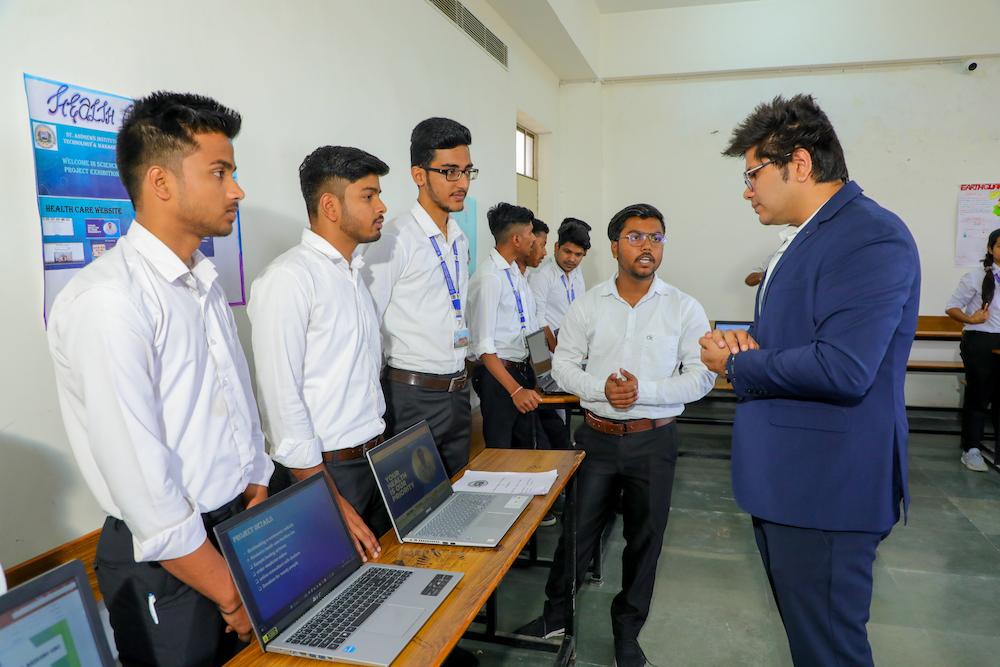
Here’s a detailed look at some of the top engineering courses, focusing on their specializations:
Computer Science Engineering (CSE):
CSE is perhaps the most sought-after BTech specialization in India. It encompasses the study of software engineering, computer systems, algorithms, artificial intelligence, automated learning, and data science. With the rapid growth of technology and digital transformation across industries, CSE graduates are highly valued for their problem-solving skills and ability to innovate in software and hardware development.
Electronics and Communication Engineering (ECE);
ECE deals with the study of electronic circuits, communication systems, signal processing, and microelectronics. Graduates in this field find opportunities in telecommunications, embedded systems, VLSI design, robotics, and IoT (Internet of Things). ECE is crucial for advancements in wireless communication, satellite communication, and electronic device design.
Mechanical Engineering:
Mechanical Engineering involves the design, analysis, manufacturing, and maintenance of mechanical systems. It covers areas such as thermodynamics, fluid mechanics, materials science, and mechanical design. Graduates can work in industries ranging from automotive and aerospace to power generation, manufacturing, and robotics.
Electrical Engineering:
Electrical Engineering focuses on electrical systems, power generation, electronics, control systems, and instrumentation. It is essential for the development of electrical infrastructure, renewable energy technologies, automation, and telecommunications. Electrical engineers play a critical role in designing and maintaining electrical grids, electronic devices, and communication networks.
Civil Engineering;
Civil Engineering deals with the design, construction, and maintenance of infrastructure projects such as buildings, roads, bridges, dams, and airports. It includes subfields like structural engineering, transportation engineering, and geotechnical engineering. Civil engineers contribute to urban development, sustainable construction practices, and infrastructure projects critical for economic growth.
Information Technology (IT);
Information Technology focuses on the application of computer systems and telecommunications to store, retrieve, transmit, and manipulate data. IT professionals are involved in software engineering, database management, network administration, cybersecurity, and IT consulting services. This specialization is integral to the functioning of businesses, government agencies, and organizations across various sectors.
Chemical Engineering;
Chemical Engineering applies principles of chemistry, physics, mathematics, and economics to efficiently produce chemicals, pharmaceuticals, fuels, and materials. It involves processes such as chemical reactions, process design, plant operations, and environmental management. Chemical engineers work in industries such as petrochemicals, pharmaceuticals, and food processing.
Aeronautical Engineering;
Aeronautical Engineering focuses on the design, construction, and maintenance of aircraft and spacecraft. It covers aerodynamics, propulsion systems, avionics, materials science, and aerospace structures. Aeronautical engineers contribute to the aerospace industry, including commercial aviation, defense, space exploration, and unmanned aerial vehicles (drones).
Biotechnology
Biotechnology applies engineering principles to biological systems for developing pharmaceuticals, improving agriculture, and advancing environmental sustainability. It includes genetic engineering, bioprocessing, bioinformatics, and biomedical research. Biotechnologists work in pharmaceutical companies, research institutions, agricultural firms, and healthcare organizations.
Environmental Engineering
Environmental Engineering addresses environmental challenges such as pollution control, waste management, water treatment, and sustainable development. It involves studying environmental systems, assessing environmental impacts, and designing solutions for environmental problems. Environmental engineers contribute to environmental protection, sustainable practices, and compliance with environmental regulations.
Top engineering colleges in India offering BTech
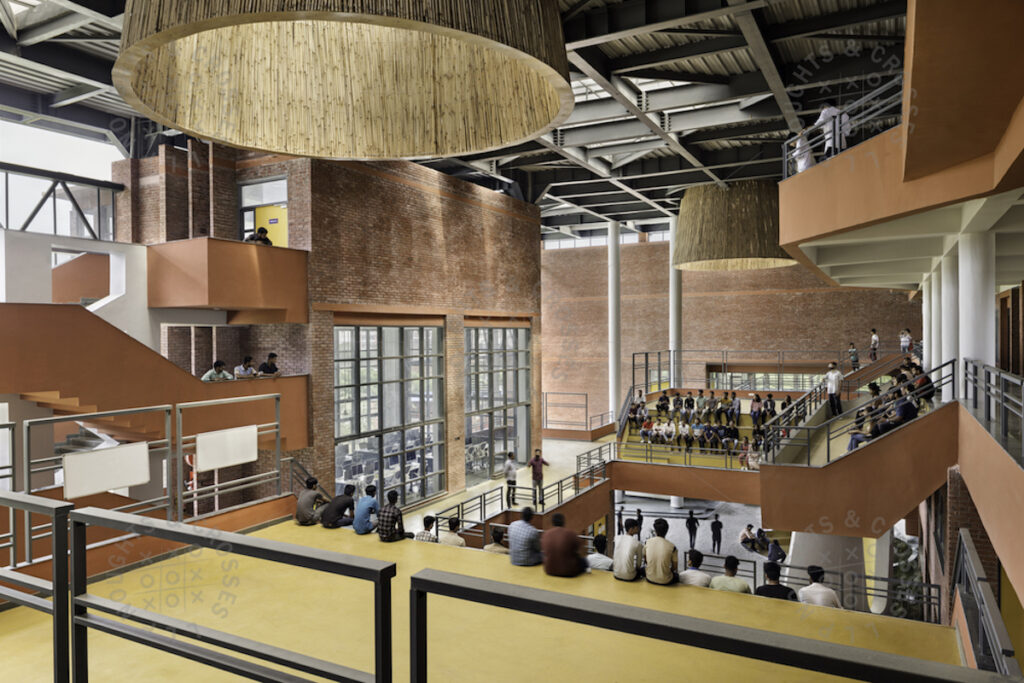
When exploring “Which Course is Best in BTech,” it’s important to consider where you study. The top colleges for BTech in India, such as the Indian Institutes of Technology (IITs) and National Institutes of Technology (NITs), are known for their academic excellence, impactful research, and strong industry connections. The high standard of engineering education at these institutions ensures that their graduates are highly sought after in the job market.
Here are some of the top colleges for BTech in India:
Indian Institutes of Technology
Known for: Strong research programs, excellent faculty, and robust placement records.
Highlight: Consistently ranked as the top engineering institute in India.
St. Andrews Institute of Technology and Management, Gurgaon
Known for: Its rigorous curriculum and strong industry connections, graduates command high starting salaries, often exceeding INR 10 lakhs per annum (LPA).
Highlight: Experienced faculty, strong industry collabrations, good placement cell.
National Institutes of Technology
Known for: High academic standards, excellent placement records, and active research programs.
Highlight: Consistently ranked among the top engineering colleges in India.
Indian Institute of Engineering Science and Technology (IIEST), Shibpur
Known for: Comprehensive engineering programs, strong research output, and notable alumni.
Highlight: Historical significance and strong industry connections.
Delhi Technological University (DTU), Delhi
Known for: Quality education, strong industry ties, and excellent placement records.
Highlight: Diverse academic programs and vibrant campus life.
Netaji Subhas University of Technology (NSUT), Delhi
Known for: Strong emphasis on research, quality education, and good placement records.
Highlight: Strategic location in the national capital, offering numerous industry opportunities.
College of Engineering, Pune (COEP)
Known for: Oldest engineering college in India, high academic standards, and active research culture.
Highlight: One of the top engineering colleges in India and renowned for their strong industry collaborations and notable alumni network.
Jadavpur University, Kolkata
Known for: Comprehensive academic programs, strong research focus, and vibrant campus life.
Highlight: Excellent faculty and infrastructure.
Post – BTech Education and Career Paths

After completing BTech in Computer Science Engineering, there are several paths you can consider for further education and career development:
Higher Education Options:
MTech/ME: Pursuing a master’s degree in CSE or a related field can deepen your knowledge and open up advanced career opportunities.
MBA: If you’re interested in management roles within the tech industry or entrepreneurship, an MBA can be a valuable addition.
MS (abroad): Consider pursuing a Master of Science abroad for exposure to international perspectives and potentially broader career opportunities.
PhD: For research-oriented careers in academia, industry research labs, or advanced technical roles, a PhD can be essential.
Certifications and Specializations:
Cybersecurity Certifications: Given your interest in cybersecurity, certifications like CISSP, CEH, or CompTIA Security+ can enhance your credentials.
Cloud Computing: Certifications from AWS, Microsoft Azure, or Google Cloud can be beneficial as cloud computing continues to grow.
Data Science: Certifications in data analytics, machine learning, or big data technologies can complement your skills.
Career Paths:
Software Development: Roles as a software engineer, developer, or programmer in various domains including web development, mobile apps, etc.
Cybersecurity Specialist: Focus on protecting computer systems and networks from digital attacks.
Data Scientist/Analyst: Analyze and interpret complex data to inform business decisions.
IT Consultant: Advise organizations on how to use technology to meet their business objectives.
Project Manager: Oversee the planning, execution, and monitoring of tech projects.
Entrepreneurship: Start your own tech venture or freelance as a consultant.
Skill Development:
Continuously upgrade technical skills in programming languages, frameworks, and emerging technologies.
Develop soft skills like communication, leadership, and problem-solving to advance in managerial or client-facing roles.
Top B Tech Courses for High-Paying Jobs
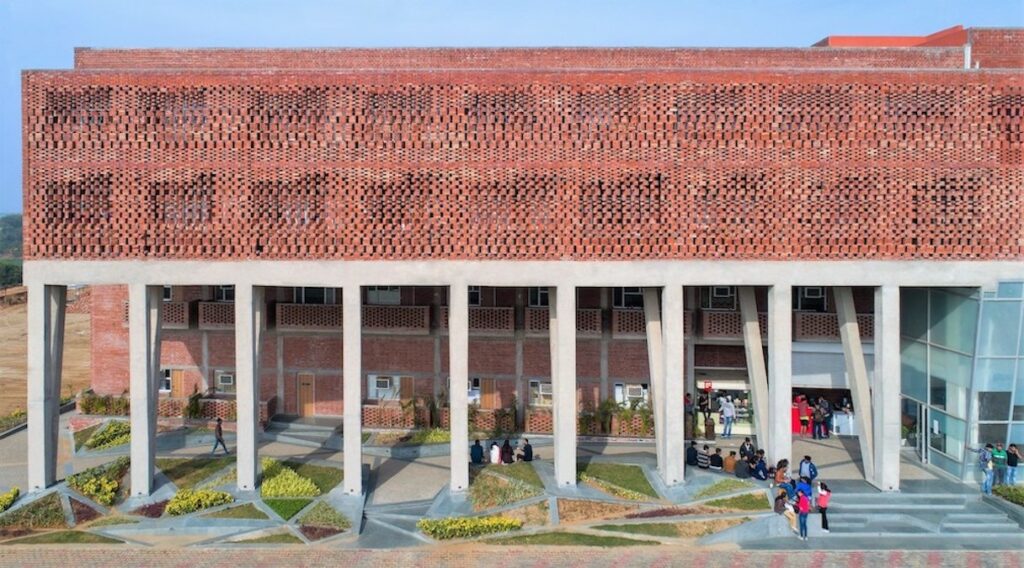
Here are some of the top BTech courses that often lead to high-paying jobs, along with average salary ranges:
Computer Science Engineering (CSE);
Career Paths: Software Developer, Data Scientist, Cybersecurity Specialist, AI Engineer.
Highlights: Strong demand in tech companies, startups, and multinational corporations.
Average Salary: ₹8-20 lakhs per annum (entry-level) to ₹20-50 lakhs per annum (experienced).
Information Technology [IT]
Career Paths: IT Consultant, Systems Analyst, Network Architect, Cloud Engineer.
Highlights: Broad applications across various industries, high salaries.
Average Salary: ₹6-18 lakhs per annum (entry-level) to ₹15-40 lakhs per annum (experienced).
Electronics and Communication Engineering [ECE]
Career Paths: VLSI Designer, Embedded Systems Engineer, Communication Engineer.
Highlights: Opportunities in telecommunications, consumer electronics, and aerospace.
Average Salary: ₹5-15 lakhs per annum (entry-level) to ₹12-30 lakhs per annum (experienced).
Mechanical Engineering(ME)
Career Paths: Automotive Engineer, Aerospace Engineer, Robotics Engineer, Manufacturing Engineer.
Highlights: Versatile applications in automotive, aerospace, energy, and manufacturing sectors.
Average Salary: ₹4-12 lakhs per annum (entry-level) to ₹10-25 lakhs per annum (experienced).
Electrical Engineering(EE)
Career Paths: Electrical Engineer, Power Systems Engineer, Control Systems Engineer.
Highlights: Crucial roles in energy sectors, infrastructure, and utilities.
Average Salary: ₹4-10 lakhs per annum (entry-level) to ₹10-22 lakhs per annum (experienced).
Chemical Engineering{CE}
Career Paths: Process Engineer, Petrochemical Engineer, Pharmaceutical Engineer.
Highlights: High-paying roles in pharmaceuticals, petrochemicals, and food processing industries.
Average Salary: ₹4-12 lakhs per annum (entry-level) to ₹10-25 lakhs per annum (experienced).
Civil Engineering,
Career Paths: Structural Engineer, Construction Manager, Geotechnical Engineer, Urban Planner.
Highlights: Key roles in infrastructure development, construction, and urban planning.
Average Salary: ₹3-8 lakhs per annum (entry-level) to ₹8-20 lakhs per annum (experienced).
Aeronautical Engineering
Career Paths: Aerospace Engineer, Aircraft Design Engineer, Avionics Engineer.
Highlights: Opportunities in aviation, defense, and space exploration sectors.
Average Salary: ₹6-15 lakhs per annum (entry-level) to ₹15-30 lakhs per annum (experienced).
Biomedical Engineering
Career Paths: Biomedical Equipment Technician, Clinical Engineer, Bioinstrumentation Engineer.
Highlights: Growing field with opportunities in healthcare technology and medical device companies.
Average Salary: ₹4-10 lakhs per annum (entry-level) to ₹10-20 lakhs per annum (experienced).
Artificial Intelligence and Machine Learning:
Career Paths: AI Engineer, Automated Learning Engineer, Data Scientist, Robotics Engineer.
Highlights: Cutting-edge technology with strong demand in tech companies and research institutions.
Average Salary: ₹8-20 lakhs per annum (entry-level) to ₹20-50 lakhs per annum (experienced).
Factors Contributing to High Salaries
Industry Demand: Specializations in high-demand industries tend to offer better salaries.
Technical Expertise: Advanced technical skills and specialized knowledge are highly valued.
Experience: Professionals with more experience and advanced degrees often command higher salaries.
Location: Job location can significantly impact salary levels, with metropolitan areas typically offering higher pay.
Post-BTech Education Eligibility Criteria
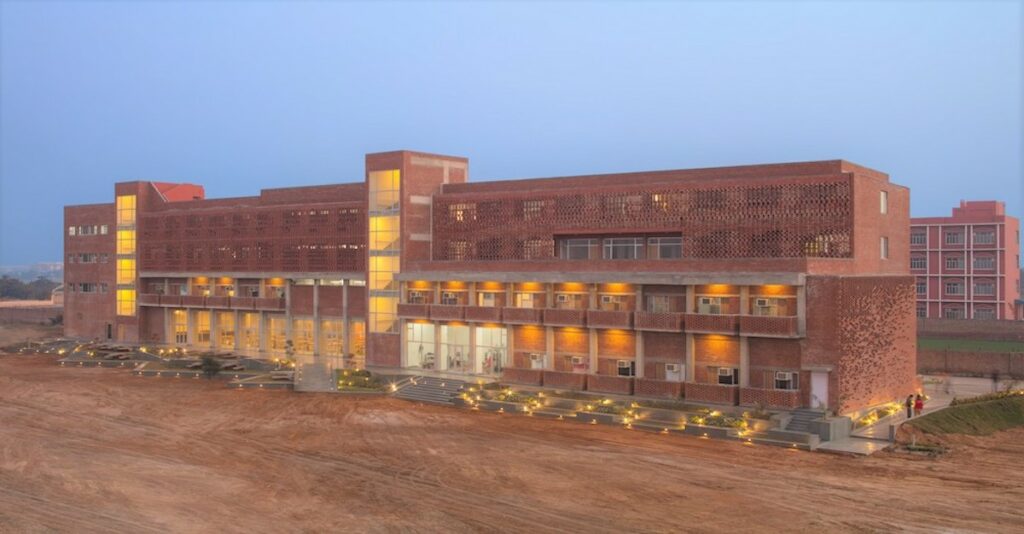
Here are the eligibility criteria for various post-BTech education options:
Master of Technology (MTech)
Eligibility: A Bachelor’s degree in Engineering or Technology (BTech or BE) from a recognized university.
Entrance Exam: GATE (Graduate Aptitude Test in Engineering) is the most common entrance exam for MTech admissions in India. Some institutions may also conduct their own entrance tests.
Master of Science (MS) Abroad
Eligibility: A BTech degree from a recognized university.
Entrance Exams: GRE (Graduate Record Examination) is often required for admission to MS programs in the US and other countries. Additionally, English language proficiency tests like TOEFL or IELTS are usually needed.
Master of Business Administration (MBA):
Eligibility: A Bachelor’s degree in any discipline from a recognized university.
Entrance Exams: Common entrance exams include CAT (Common Admission Test), MAT (Management Aptitude Test), GMAT (Graduate Management Admission Test), XAT (Xavier Aptitude Test), and others depending on the country and institution.
Post Graduate Diploma in Management (PGDM)
Eligibility: A Bachelor’s degree in any discipline from a recognized university.
Entrance Exams: Similar to MBA, entrance exams like CAT, MAT, GMAT, XAT, etc., are required.
Master of Computer Applications (MCA)
Eligibility: A Bachelor’s degree in Computer Applications (BCA) or related fields like Computer Science, IT, or even BTech.
Entrance Exams: National-level exams like NIMCET (NIT MCA Common Entrance Test) or state-level entrance exams.
Specialized Certifications and Courses
Eligibility: Generally, a BTech degree in a relevant field. Specific certifications may have additional prerequisites.
Courses: Examples include certifications in data science, machine learning, artificial intelligence, cybersecurity, cloud computing, etc. Offered by institutions like Coursera, edX, and specialized training centers.
Doctor of Philosophy (PhD)
Eligibility: A Master’s degree in a relevant field is typically required, though some institutions may admit students directly after a BTech with an exceptional academic record.
Entrance Exams: Varies by institution. Common exams include GATE, CSIR-NET, UGC-NET, or institutional entrance tests.
Public Sector Examinations
Eligibility: A BTech degree from a recognized university.
Exams: Various exams for government jobs, such as IES (Indian Engineering Services), SSC (Staff Selection Commission) exams, and PSU (Public Sector Undertakings) recruitments through GATE.
In – Demand BTech Courses for a Successful Engineering Career
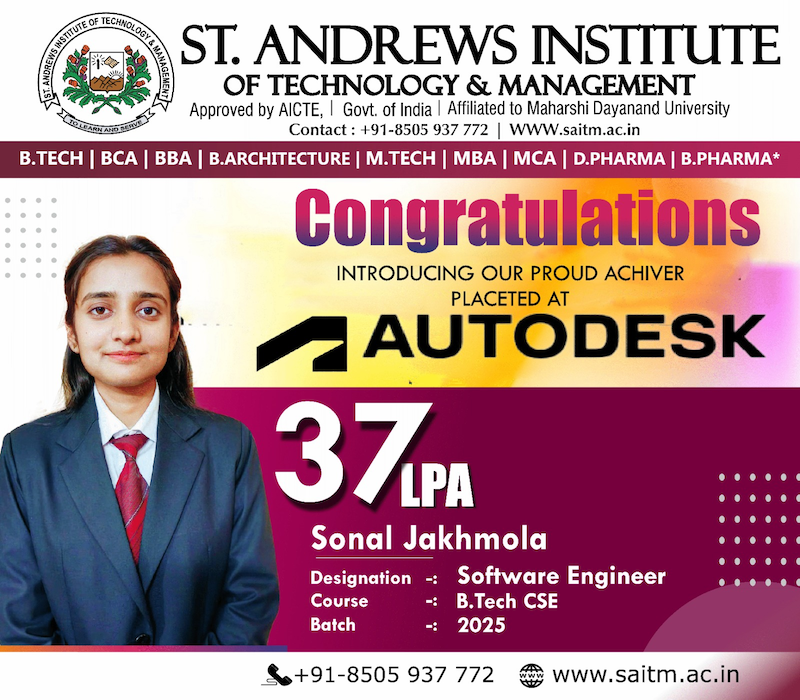
Choosing in-demand BTech courses can significantly enhance your prospects for a successful engineering career. When pondering “Which Course is Best in BTech,” it’s beneficial to select specializations that align with current and future market demands, ensuring you have relevant skills for emerging opportunities.
Here are some of the most sought-after BTech courses in India, considering current industry trends and job market demand:
Computer Science and Engineering (CSE):
Why it’s in demand: With the rise of digital transformation, AI, machine learning, cybersecurity, and software development, CSE graduates are highly sought after across industries.
Career Opportunities: Software Developer, Data Scientist, AI Engineer, Cybersecurity Analyst, System Analyst.
Electronics and Communication Engineering {ECE}
Why it’s in demand: Rapid advancements in telecommunications, IoT, embedded systems, and consumer electronics drive demand for ECE graduates.
Career Opportunities: Telecom Engineer, Network Engineer, Embedded Systems Engineer, VLSI Design Engineer, Signal Processing Engineer.
Mechanical Engineering{ME}
Why it’s in demand: Essential for manufacturing, automotive, aerospace, and renewable energy sectors, offering diverse opportunities in design, production, and maintenance.
Career Opportunities: Mechanical Engineer, Design Engineer, Production Engineer, Quality Control Engineer, Maintenance Engineer.
Civil Engineering{CE}
Why it’s in demand: With infrastructure development projects booming, civil engineers are needed for construction, urban planning, and environmental engineering.
Career Opportunities: Civil Engineer, Structural Engineer, Project Manager, Urban Planner, Environmental Engineer.
Electrical Engineering{EE}
Why it’s in demand: Vital for power generation, distribution, electronics, and automation industries, with growing focus on renewable energy and smart grids.
Career Opportunities: Electrical Engineer, Power Systems Engineer, Control Systems Engineer, Electronics Engineer, Energy Consultant.
Information Technology (IT)
Why it’s in demand: IT encompasses a broad range of roles from software development to IT infrastructure management, critical for digital transformation.
Career Opportunities: IT Consultant, Systems Analyst, Network Administrator, Cloud Engineer, IT Manager.
Chemical Engineering[CE]
Why it’s in demand: Essential for industries like pharmaceuticals, petrochemicals, environmental engineering, and materials science.
Career Opportunities: Chemical Engineer, Process Engineer, Biotechnologist, Environmental Engineer, Quality Control Engineer.
Biotechnology Engineering
Why it’s in demand: With advancements in healthcare, pharmaceuticals, and agriculture, biotech engineers are pivotal in research and development.
Career Opportunities: Biomedical Engineer, Biotechnologist, Clinical Research Associate, Genetic Engineer, Bioinformatics Specialist.
Aerospace Engineering
Why it’s in demand: With the growth of aviation, space exploration, and defense sectors, aerospace engineers are needed for design, manufacturing, and research.
Career Opportunities: Aerospace Engineer, Avionics Engineer, Flight Test Engineer, Aerospace Designer, Systems Engineer.
Artificial Intelligence and Machine Learning {AIML}
Why it’s in demand: AI and ML are transforming industries with automation, data analytics, and predictive modeling.
Career Opportunities: AI Engineer, Machine Learning Engineer, Data Scientist, NLP Engineer, Robotics Engineer.
Career-Boosting Courses After BTech for Engineering Students
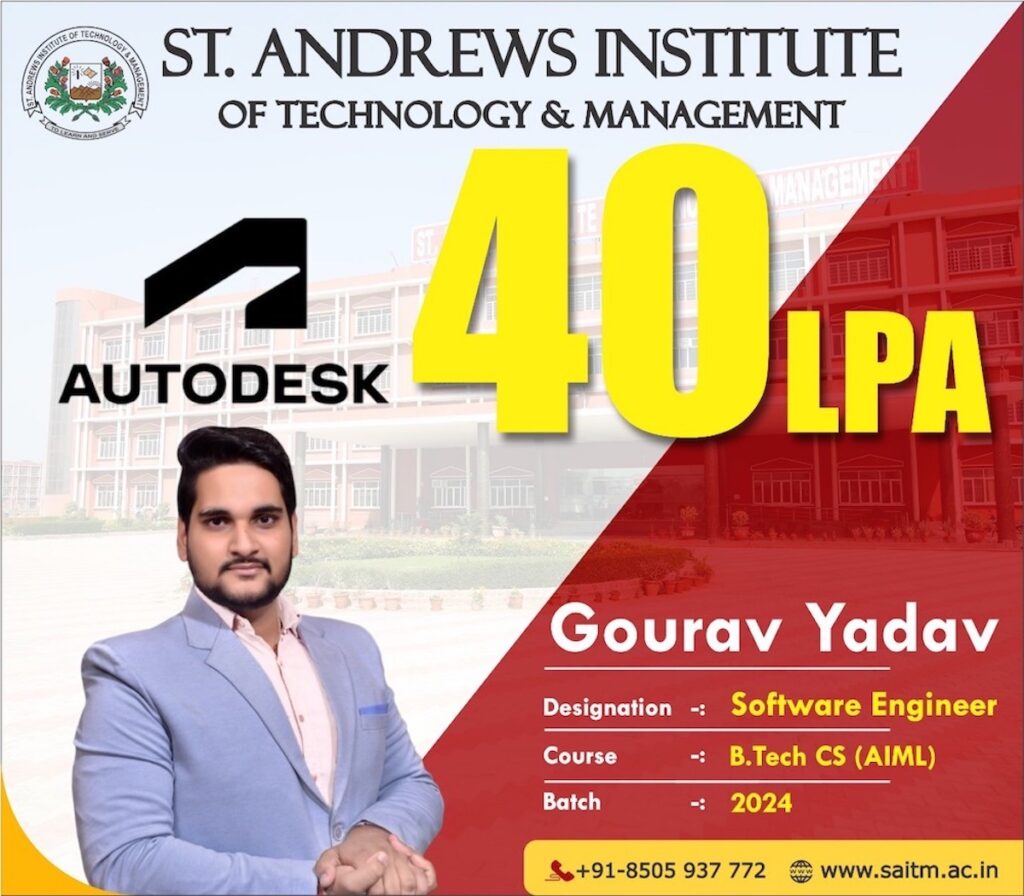
After completing a B.Tech degree, engineering graduates who pursue specialized courses can significantly boost their career prospects. When considering “Which Course is Best in BTech” for further specialization, focus on areas that enhance your skills and deepen your knowledge, aligning with industry demands and personal career goals.
Here are some career-boosting courses you can consider:
Master of Technology (MTech):
Why it’s beneficial: Provides advanced knowledge in your BTech specialization, deepens technical expertise, and enhances career opportunities in specialized roles.
Ideal for: Those looking to pursue a career in research, academia, or specialized engineering roles.
Master of Science (MS)
Why it’s beneficial: Focuses on research methodologies, critical thinking, and specialization in engineering or related fields, preparing for advanced technical roles or doctoral studies.
Ideal for: Aspiring researchers, academics, or those aiming for specialized technical roles in industry.
Master of Business Administration (MBA)
Why it’s beneficial: Combines technical skills with managerial expertise, preparing for leadership roles in engineering management, operations, or entrepreneurship.
Ideal for: Engineers aspiring to move into management roles, project managers, or entrepreneurs in technology-driven ventures.
Postgraduate Diploma in Management (PGDM)
Why it’s beneficial: Focuses on business management with a specialization in areas like Operations, IT, or Project Management, enhancing managerial and strategic skills.
Ideal for: Engineers aiming to develop business acumen and pursue careers in corporate management or consultancy.
Certifications in Emerging Technologies
Examples:
Data Science and Analytics: Certification in Data Science, Machine Learning, Big Data Analytics.
Artificial Intelligence: AI and ML Certification, Deep Learning Certification.
Cybersecurity: Certified Ethical Hacker (CEH), Certified Information Systems Security Professional (CISSP).
Cloud Computing: AWS Certified Solutions Architect, Azure Certification.
Why they’re beneficial: Validates specialized skills in high-demand areas, enhances employability, and keeps you updated with industry trends.
Ideal for: Engineers looking to specialize in emerging technologies and enhance technical skills relevant to current industry demands.
Advanced Diploma Courses
Examples:
Diploma in Industrial Automation
Advanced Diploma in CAD/CAM
Diploma in Robotics
Why they’re beneficial: Provides hands-on training in specific technical domains, improves practical skills, and prepares for specialized engineering roles.
Ideal for: Engineers interested in practical, skill-oriented training to enhance career prospects in niche areas of engineering.
Executive Education Programs
Examples:
Executive Programs in Leadership and Management
Strategic Innovation Management
Digital Transformation Programs
Why they’re beneficial: Tailored for mid-career professionals, these programs enhance leadership, strategic thinking, and innovation skills.
Ideal for: Experienced engineers aiming for career advancement into senior management or strategic roles.
Industry-Specific Certifications
Examples:
Project Management Professional (PMP) for Engineering Projects
Quality Management Certifications (Six Sigma Green Belt/Black Belt)
Lean Manufacturing Certifications
Why they’re beneficial: Industry-recognized certifications validate expertise in specialized areas, enhancing career opportunities and credibility.
Ideal for: Engineers in specific industries (manufacturing, construction, IT) seeking to improve project management or quality assurance skills.
FAQs
What factors should I consider when choosing a BTech course?
When deciding “Which Course is Best in BTech,” consider factors such as your interests, career goals, current job market demand, and the future prospects of each specialization. These elements are crucial in guiding your choice of technical courses.
Which BTech specialization has the best career prospects?
When asking “Which Course is Best in BTech,” consider specializations like Computer Science Engineering (CSE), Petroleum Engineering, Electronics and Communication Engineering, and Mechanical Engineering. These disciplines often have strong career prospects due to consistent industry demand, making them solid choices for those looking to align their education with future job opportunities.
Is it better to choose a traditional branch like Mechanical or Civil Engineering, or should I opt for newer fields like AI or Data Science?
When deciding “Which Course is Best in BTech,” consider your interests alongside current job market trends. Newer fields like AI and Data Science offer exciting opportunities and are highly relevant today. However, traditional branches such as Mechanical or Electrical Engineering also hold significant value due to their robust technical foundations.
What are some emerging fields in BTech that I should consider?
Emerging fields with rigorous academic programs include Robotics, Cybersecurity, Renewable Energy Engineering, and Biotechnology.
How do I know which BTech course suits my skills and interests?
Assess your strengths, passions, and career goals. Research each specialization’s curriculum and career pathways to make an informed decision.
What are the top colleges for specific BTech specializations in India?
To determine “Which Course is Best in BTech,” consider top institutions like IITs, NITs, IIITs, St. Andrews Institute of Technology and Management, Delhi Technological University, and other reputed private institutions. Research their placements, faculty, and curriculum to find the program that best fits your educational and career goals.
What are the job opportunities like after completing BTech in CSE?
For those considering “Which Course is Best in BTech,” Computer Science Engineering (CSE) offers a range of career opportunities. CSE graduates can work in fields such as software development, IT consulting, cybersecurity, and data analytics. The IT industry is known for its diverse career paths and competitive salaries.
How important is accreditation when choosing a BTech course?
When determining “Which Course is Best in BTech,” ensure the program is accredited by reputable organizations like the National Board of Accreditation (NBA) in India. Accreditation confirms that the program adheres to quality standards and can enhance your job prospects.
Should I consider dual specialization programs in BTech?
Dual specialization programs in BTech can broaden your skill sets and enhance your competitiveness in the job market. When considering “Which Course is Best in BTech” for dual specialization, evaluate if the additional time and effort align with your long-term career goals.
What should I do if I’m still unsure about which BTech course to choose?
To gain clarity on “Which Course is Best in BTech,” seek guidance from career counselors, connect with alumni, consult industry professionals, and consider engaging in internships or short courses related to your areas of interest.

